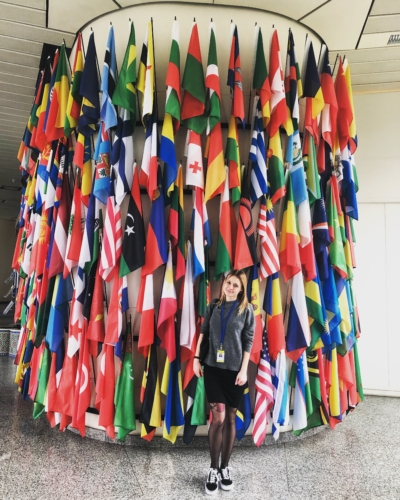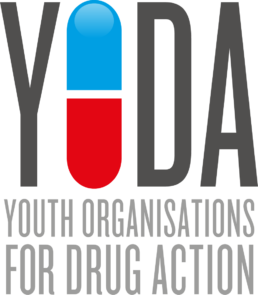
This article was published as a part of the Let Me project, that YODA is a part of.
Author: Roksana Karczewska, Youth Organisations for Drug Action in Europe (YODA)
In 2019, Poland’s highest supervisory body called the Supreme Audit Office looked at drug prevention implemented in the country. After analysing the collected data, a report was published that showed gross irregularities in the spending of public funds allocated for this purpose. The key problems were the implementation of the programmes that were not recommended by the Ministry of Health, not designed in accordance with the European standards, and most importantly the fact, that 52% of Polish youth did not participate in any form of prevention.
From the 80-page report we can also learn that prevention activities are organised ad hoc, without any analysis of the situation and the environment (and thus the programme may be inadequately adjusted to the needs of a given group). These activities take place during school festivals – sport and health days, etc. or, what is worse, when something bad happens among the students (so when it is definitely too late for prevention).
Young people declare that the only place where they had contact with drug education is school. If they have had it at all.
Two years after the report publishing, the conclusions of the research conducted last year within our “LEt’s Talk about drugs – new MEthods of communication with youth” (LET ME) project (in partnership with Bulgaria, Hungary, Lithuania and Serbia), are still the same, which means that nothing is changing in this area, despite clear indications that it should.
You can read the full report here: https://drugeducationyouth.org/drug-education-assessment-report/
The results of the report don’t make us optimistic, however, we can be proud of grassroots initiatives that fill the educational gap created by ineffective school drug prevention.
Undoubtedly, the strength of Polish drug education is the activity of non-governmental organisations that try to break out of the abstinence pattern and provide young people with education adapted to their age and individual needs. Listening to the needs of young people is extremely important – especially because their declarations show that ignoring their views in the preparation of such classes, makes them useless and ineffective.
Among the problems of the current form of drug education, young people also mention the lack of trust in the people who provide it – often in law enforcement officials or other people who play a decision-making role in relation to young people.
These two main problems can be solved in a simple and effective way: by involving representatives of non-governmental organisations and peer educators, who provide young people with a space for unconstrained discussion with the support of a professional who is often more knowledgeable about the topic than a teacher.
As an example of a well-functioning and extensively evaluated prevention programme implemented in Poland, one can mention the Fred Goes Net programme, also present in many other European Union countries. Simple rules were adopted while designing the programme, such as: an outside specialist, small groups, interactive forms of influence such as quizzes, emotional education elements allowed to create a programme involving a young person in his/her own educational process instead of passive prevention based on a lecture or film demonstration.
It is also worth mentioning the activities of NGOs in the form of street working, party working and other outreach activities. Many years of peer educators’ and specialists’ work in this field have made it possible to offer education directly to the young people’s environment. Young people declare that this type of activities allows them to acquire real knowledge, based on support, ‘don’t punish’ approach, and let them understand and fight stigma towards drug use. The peer educators’ activities are evaluated positively, nevertheless their availability is limited only to bigger cities.
People in smaller cities can benefit from education offered, for example, at large music festivals or via the Internet. An example of such a programme is “Krzywo weszło – ustawienia” (“An error occurred, change the settings”). Peer educators together with specialists have worked at the biggest Polish festivals, offering knowledge about substances, harm reduction, forms of help and places where it can be obtained. At the same time, a game was launched on the Internet addressing different age groups and fighting misconceptions about drugs in an interactive form.
Specialists from NGOs and peer educators have plenty of fresh ideas for youth-friendly education – involving influencers, social platforms and technical tools that teachers rarely use. They understand the need for a shift to a more youth-centered approach in drug education. At a time when information from the Internet is always at our fingertips, there is no place for prevention based on fear and outdated knowledge.
After the analysis of the situation in Polish drug prevention and education, the following reflection may come to mind: we have a lot of good practices to be proud of, however, most of them come from non-governmental organisations, therefore the government should seriously consider even greater involvement of NGOs in this educational sector. Undoubtedly, this area needs significant changes, and the idea of sharing good practices and strengthening cooperation between the NGO sector and public schools gives hope for creating a drug education accessible everywhere, based on trust and respect for the autonomy of young people.
Why is this important? Research shows that Polish youth mainly learns about substances from the Internet and their peers. Little knowledge about drugs, low level of harm reduction awareness and relatively high level of consumption of new psychoactive substances result in a big number of situations that are dangerous to health. So, in accordance with the popular saying in Poland, ‘to prevent is better than to cure’, we should change drug education as soon as possible.

